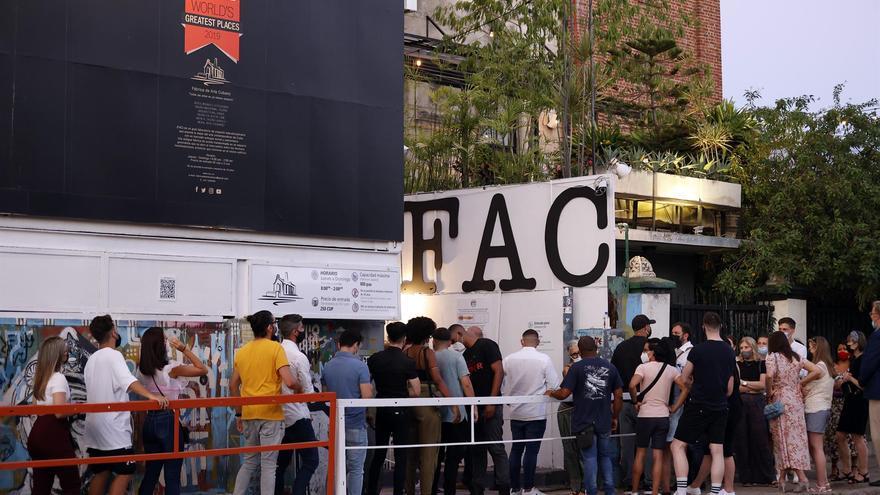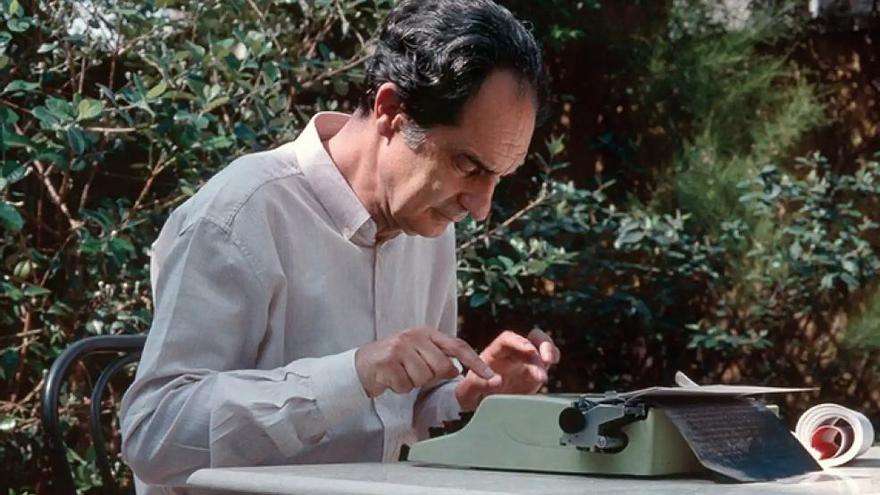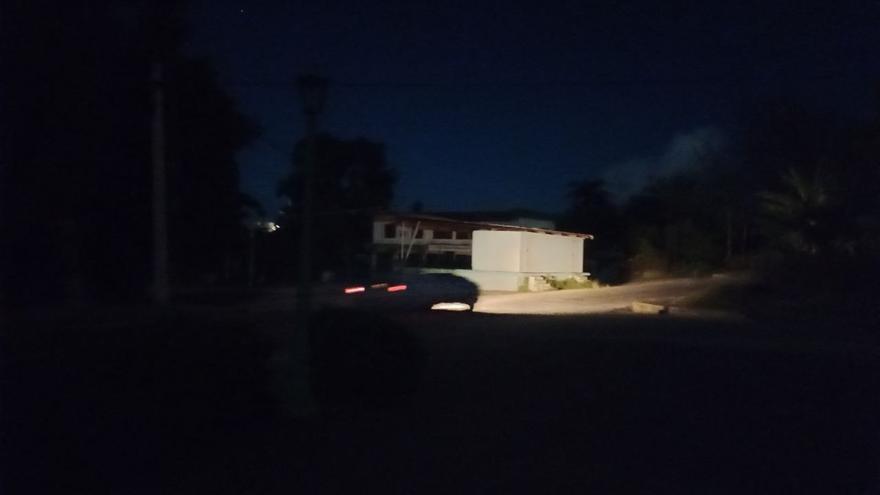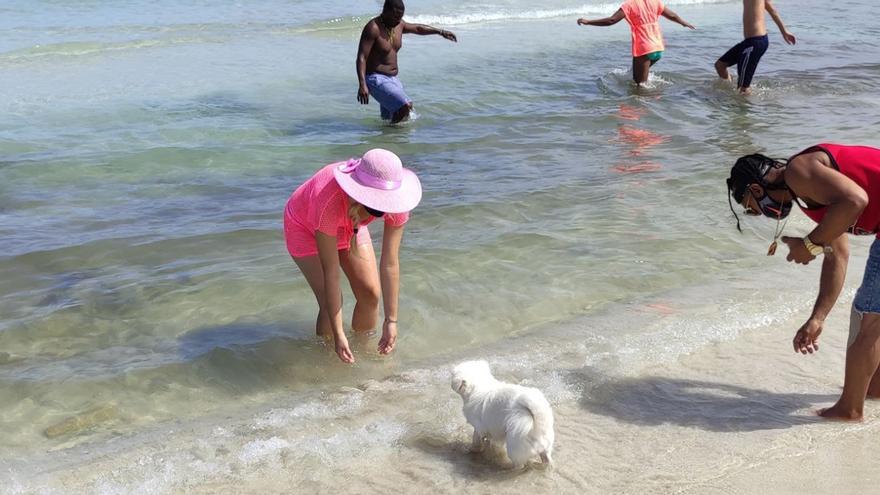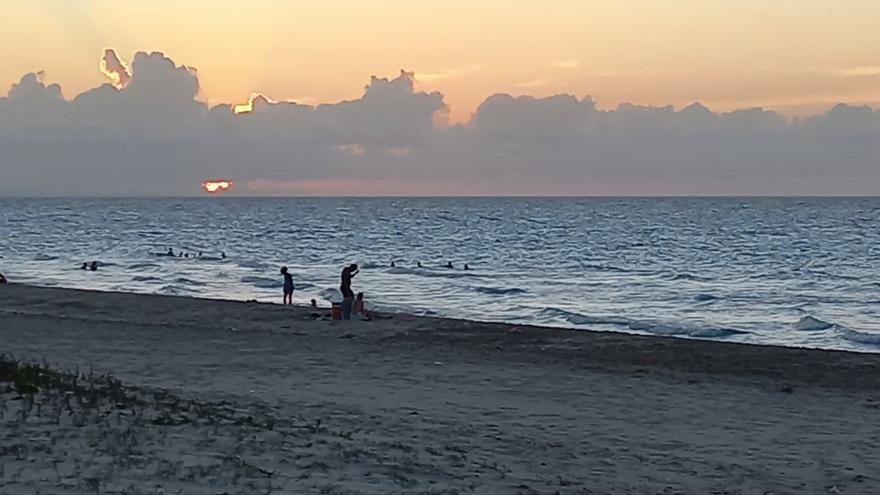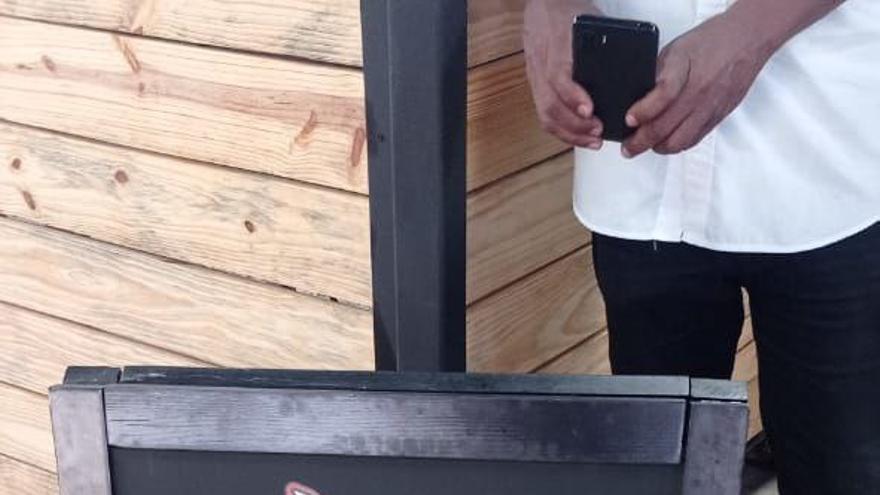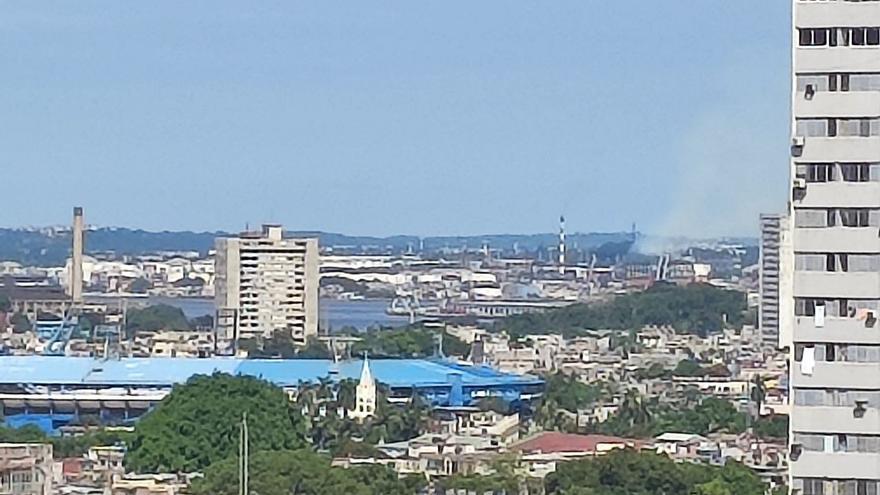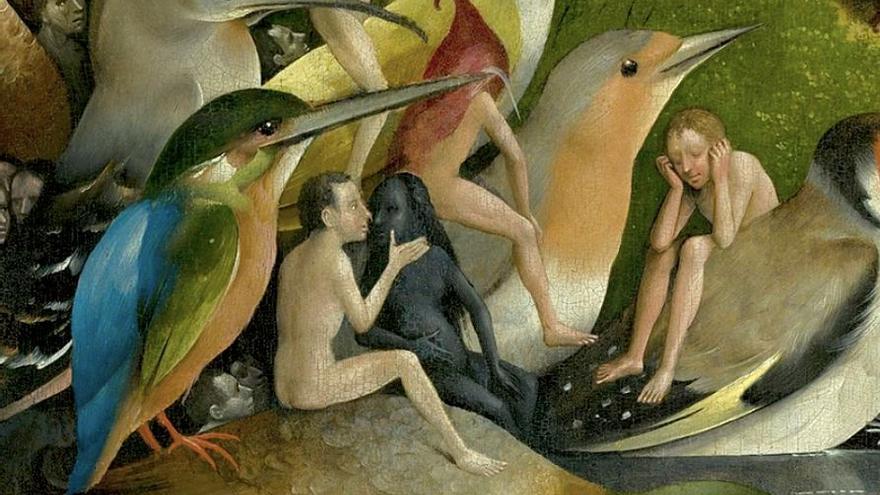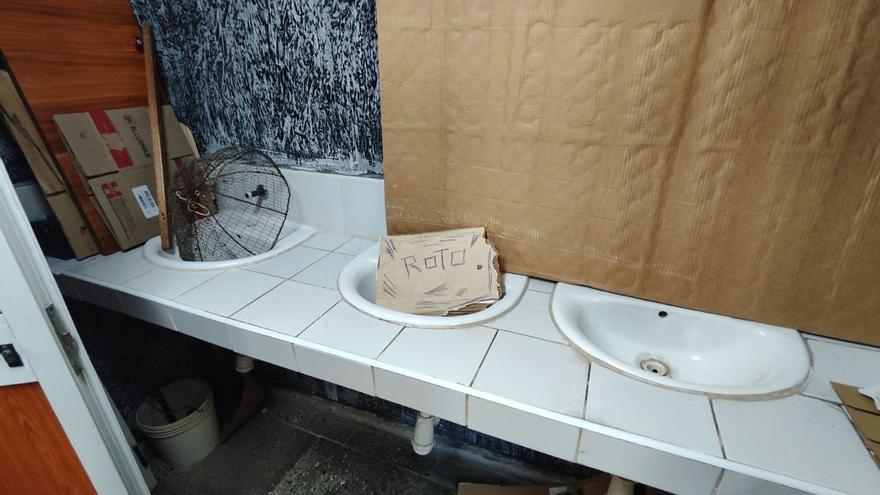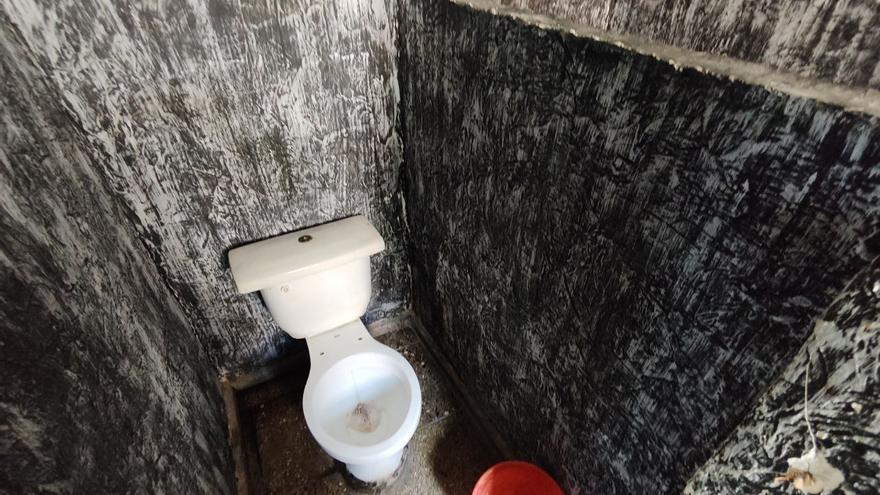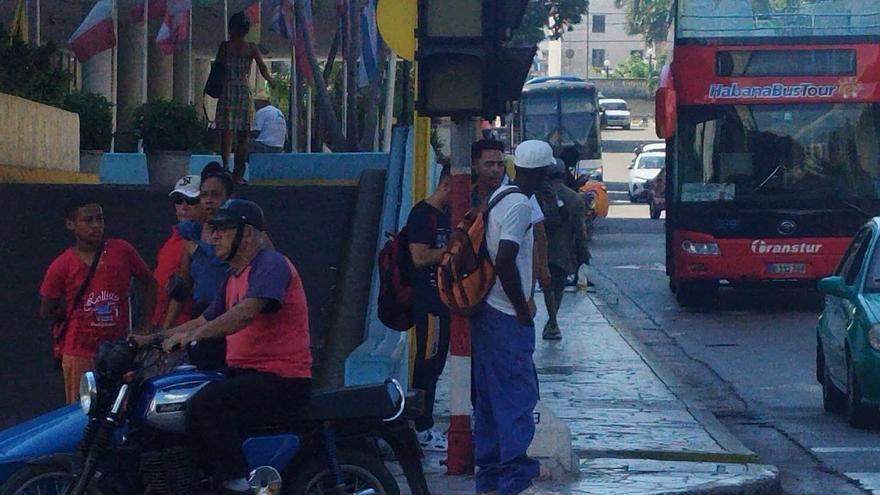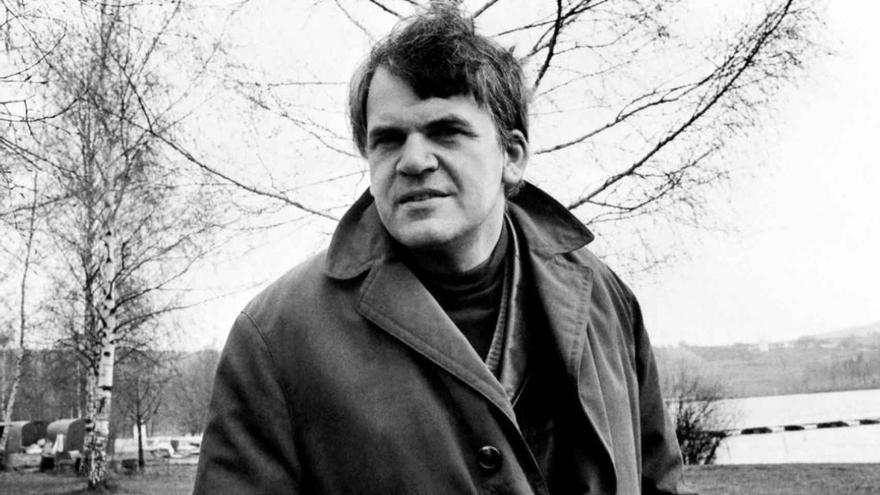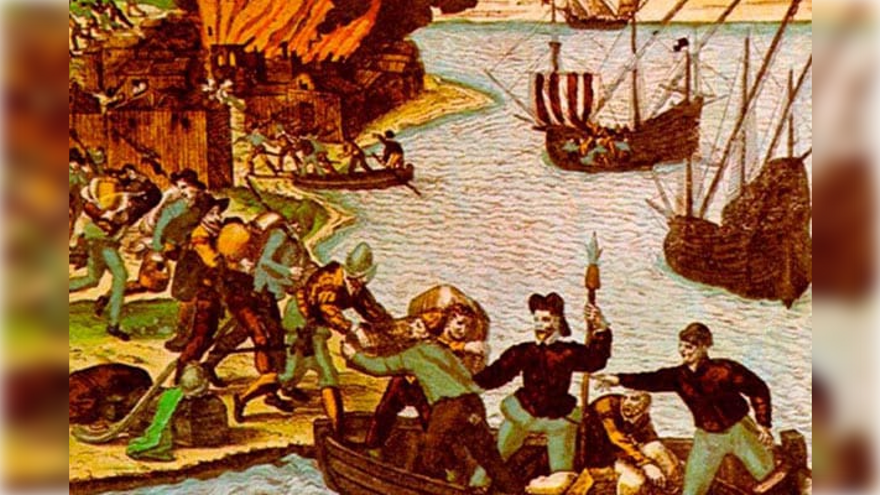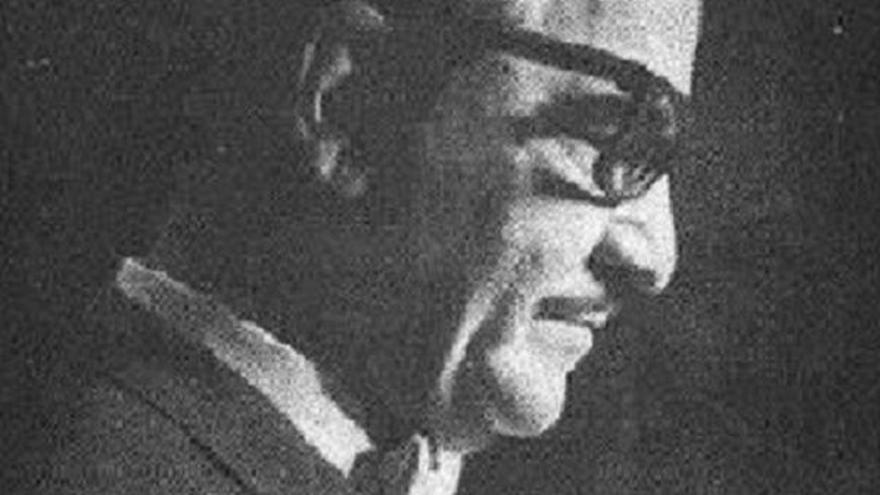“The hardest is when the power goes off in the early hours, because with the heat and the mosquitos no one can get any sleep”, complains this 42-year-old Santiago resident. “During the day you try and get done all the things that need electricity while it’s available, but when you go to bed how do you order your body to rest, with all these inconveniences going on”. continue reading
The strict timetable of power cuts, which up to three times a day affects the two sections into which the eastern side of the city is divided, has been available to view for weeks, but “sometimes it isn’t adhered to”
The strict timetable of power cuts, which up to three times a day affects the two sections into which the eastern side of the city is divided, has been available to view for weeks, but “sometimes it isn’t adhered to”, Luisa explains. During September, “when things weren’t so bad, there were days when they were supposed to cut the power off for an hour but then they didn’t, or they did cut it but it came on again before it was due to”.
However, the residents of Marialina complain that on many occasions they cut the power at times when, according to the schedule, it should remain on. “It’s a joke, and since the beginning of October it’s getting even worse. You can see all the people watching their phones, desperately trying to check the times of the power cuts to get all their domestic tasks done before they happen”.
With its columns divided up into hours, and into yellow and white depending on the section of the city, the timetable distributed by UNE has become an all too familiar sight for Santiago residents. “In the beginning I found it all really difficult to understand but now even my little boy says to me: look, mama, it’s our turn again this morning”.
Every month, when the new timetable is published, the residents of Santiago de Cuba send it around to each other. “People put it up everywhere; one friend sent it to me via Messenger and I forwarded it on to everyone I knew”, the woman explains. As if it weren’t enough to have to carry in your head all the details of the food rationing system and its own particular timetable of “module” availability, Cubans now have to learn how to navigate all the twists and turns of this new power cut timetable nonsense too.
A lack of fuel has caused reductions in public transport, an increase in the number of power cuts and a rise in people’s feelings of uncertainty
Next door to Louisa’s flat, a family whose son has emigrated complains that when the power goes off they also lose mobile internet. “This shouldn’t happen, because Etecsa’s mobile signal masts are supposed to carry on working, but in fact when the power goes off there’s no longer any way to access the internet – it’s a total blackout: of electricity and of connection”, the woman rails.
In Sancti Spiritus on Tuesday, Duanny has just spent his umpteenth morning without electricity. Lying in bed, sweating heavily and with a gesture of discomfort, he took a selfie which he tried to send to friends on WhatsApp. Only after several hours, when the power returned, did the image of this 33-year-old Espiritu resident get posted on the group chat of his friends.
“This October started badly”, says Duanny. October – which Cubans used to await with relish because it’s when summer temperatures finally begin to fall – has become a bit of a bad joke. A lack of fuel has caused reductions in public transport, an increase in the number of power cuts and a rise in people’s feelings of uncertainty.
“Here, every time things get bad, even if fuel supplies improve later, it never gets back to how it was before”, says Duanny. Trained as a nurse, he uses his knowledge of care for the elderly to describe the current situation in Cuba. “An elderly man has flu or suffers a fracture and is cured, but after going through this he never really gets back to his earlier self – he loses some of his capabilities and his level of health is never quite the same again. That’s what is happening to this country: once it’s lost something there’s no way of getting it back”.
In the end it was all a bit half-done because during one of the power cuts the power came back before it was scheduled to, but then they turned it off one morning when they weren’t scheduled to
The Sancti Spiritus UNE also distributes the dreaded timetable, in which, for this province, they use the alternating colours of red and blue. “I print it out at work with enlarged print and then stick it on the fridge door to help guide my parents because they don’t use the mobile phone much”, he adds. On Monday, the block where Duanny lives had three power cuts scheduled – each one for four hours.
“In the end it was all a bit half-done because during one of the power cuts the power came back before it was scheduled to, but then they turned it off one morning when they weren’t scheduled to”, he told this newspaper. The Espiritu resident doesn’t hide his resentment towards the “privileged Habaneros”: in the Cuban capital the frequency and length of power cuts doesn’t come anywhere near those that ravage the provinces.
On UNE’s Facebook page and on their Telegram channel there are many messages questioning the severity of the power cuts in the provinces of the interior, whilst Havana gets “a free ride” – in Duanny’s opinion. “They don’t even know that it’s October in Havana – they’re still living in September”, he says, annoyed.
On his fridge door, the timetable of cuts announces that there will be eight hours without electricity in Duanny’s neighbourhood on Tuesday. And Luisa, starting early in the day, before the power goes off, has put on the pressure cooker to soften some beans. She prays that the food will be ready before the house is plunged into darkness.
Translated by Ricardo Recluso
____________
COLLABORATE WITH OUR WORK: The 14ymedio team is committed to practicing serious journalism that reflects Cuba’s reality in all its depth. Thank you for joining us on this long journey. We invite you to continue supporting us by becoming a member of 14ymedio now. Together we can continue transforming journalism in Cuba.

![]() 14ymedio, Havana, 23 October 2023 – A group of people, the majority of them women, blocked a road last Saturday in Maisí, Guantanamo, after suffering a week with no water supply. During their protest they collected tanks and oil drums to block the traffic, which brought in the authorities.
14ymedio, Havana, 23 October 2023 – A group of people, the majority of them women, blocked a road last Saturday in Maisí, Guantanamo, after suffering a week with no water supply. During their protest they collected tanks and oil drums to block the traffic, which brought in the authorities.
